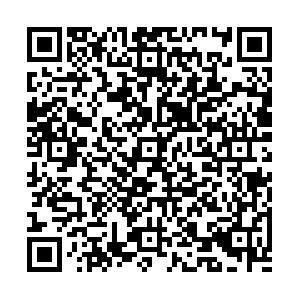From "Educating for Scores" to "Educating Person": A Probe into the Chinese Path to Modernization of Educational Evaluation
-
摘要: 教育评价事关教育发展方向,促进教育评价现代化有助于推动教育现代化,进而为中国式现代化强国建设提供人才支撑。在我国,应试文化是根深蒂固的。在教育评价现代化进程中,需要将指向“育分”的以分数为中心的评价转型为指向“育人”的以学习为中心的评估。第一,实施学习段评估,转变对学生学习结果的认识,加强评估结果的形成性运用。第二,开展学习性评估,凸显教-学-评的一致性,提升教师反馈质量。第三,倡导学习化评估,鼓励学生关注学习过程中的进步,唤醒自觉发展的意识。第四,推进智能型评估,拓展数据采集渠道,深入分析海量数据。Abstract: Education evaluation is closely related to the direction of education development. Promoting the modernization of educational evaluation is conducive to promoting modernization of education, and then providing talent support for the construction of a great modern country. In our country, the test-oriented culture is deeply rooted. In the process of modernizing of educational evaluation, it is necessary to transform score-oriented evaluation to learning-oriented assessment, from pointing to "educating for scores" to "educating person". First, implementing assessment of learning, changing the understanding of students' learning outcomes, and strengthening the formative use of assessment results. Second, carrying out assessment for learning, highlighting the consistency of teaching, learning and assessment, and improving the quality of teachers' feedback. Third, advocating assessment as learning, encouraging students to pay attention to their progress in the learning process, and awakening the awareness of self-development. Fourth, promoting intelligentized assessment, expanding learning data collection channels, and analyzing massive data deeply.
-
[1] 习近平. 高举中国特色社会主义伟大旗帜为全面建设社会主义现代化国家而团结奋斗[N]. 人民日报, 2022-10-26(1). [2] 郑金洲. "中国式现代化"的教育意蕴[J]. 中国教育学刊, 2022(12): 1-7. https://www.cnki.com.cn/Article/CJFDTOTAL-ZJYX202212001.htm [3] 中共中央、国务院. 深化新时代教育评价改革总体方案[N]. 人民日报, 2020-10-14(1). [4] 顾明远, 石中英. 学无止境——构建学习型社会研究[M]. 北京: 北京师范大学出版社, 2010: 15. [5] 周光礼, 袁晓萍. 聚焦"四个评价" 深化教育评价机制改革[J]. 中国考试, 2020(8): 1-5. https://www.cnki.com.cn/Article/CJFDTOTAL-KSYJ202008001.htm [6] 曾文婕, 黄甫全, 余璐. 评估促进学习何以可能——论新兴学本评估的价值论原理[J]. 教育研究, 2015(12): 79-88. https://www.cnki.com.cn/Article/CJFDTOTAL-JYYJ201512012.htm [7] 岳欣云, 董宏建. 论小学生数学隐性学力的提升[J]. 课程·教材·教法, 2016(10): 63-68. https://www.cnki.com.cn/Article/CJFDTOTAL-KJJF201610011.htm [8] 曾文婕. 新课标下学生学习评价的变革[J]. 湖南师范大学教育科学学报, 2022(3): 12-15. [9] 曾文婕. 论生态型学习评估范式的建构[J]. 中国教育学刊, 2019(2): 48-53. https://www.cnki.com.cn/Article/CJFDTOTAL-ZJYX201902011.htm [10] 王天平, 牌代琼. 新时代教育增值评价改革: 从数据描绘走向价值呈现[J]. 中国考试, 2022(10): 31-38. https://www.cnki.com.cn/Article/CJFDTOTAL-KSYJ202210004.htm [11] 崔允漷. 试论新课标对学习评价目标与路径的建构[J]. 中国教育学刊, 2022(7): 65-70, 78. https://www.cnki.com.cn/Article/CJFDTOTAL-ZJYX202207019.htm [12] 辛涛. "探索增值评价"的几个关键问题[J]. 中小学管理, 2020(10): 1. https://www.cnki.com.cn/Article/CJFDTOTAL-ZXXG202010001.htm [13] 刘邦奇, 刘碧莹, 胡健, 等. 智能技术赋能新时代综合评价: 挑战、路径、场景及技术应用[J]. 中国考试, 2022(6): 6-15. https://www.cnki.com.cn/Article/CJFDTOTAL-KSYJ202206002.htm [14] 黄炜, 张治, 胡爱花, 等. 基于"五育融合"的学生数字画像构建与实践分析[J]. 教育发展研究, 2021(18): 44-51. https://www.cnki.com.cn/Article/CJFDTOTAL-SHGJ202118008.htm -

 点击查看大图
点击查看大图
计量
- 文章访问数: 1127
- HTML全文浏览量: 303
- PDF下载量: 27
- 被引次数: 0



 下载:
下载: